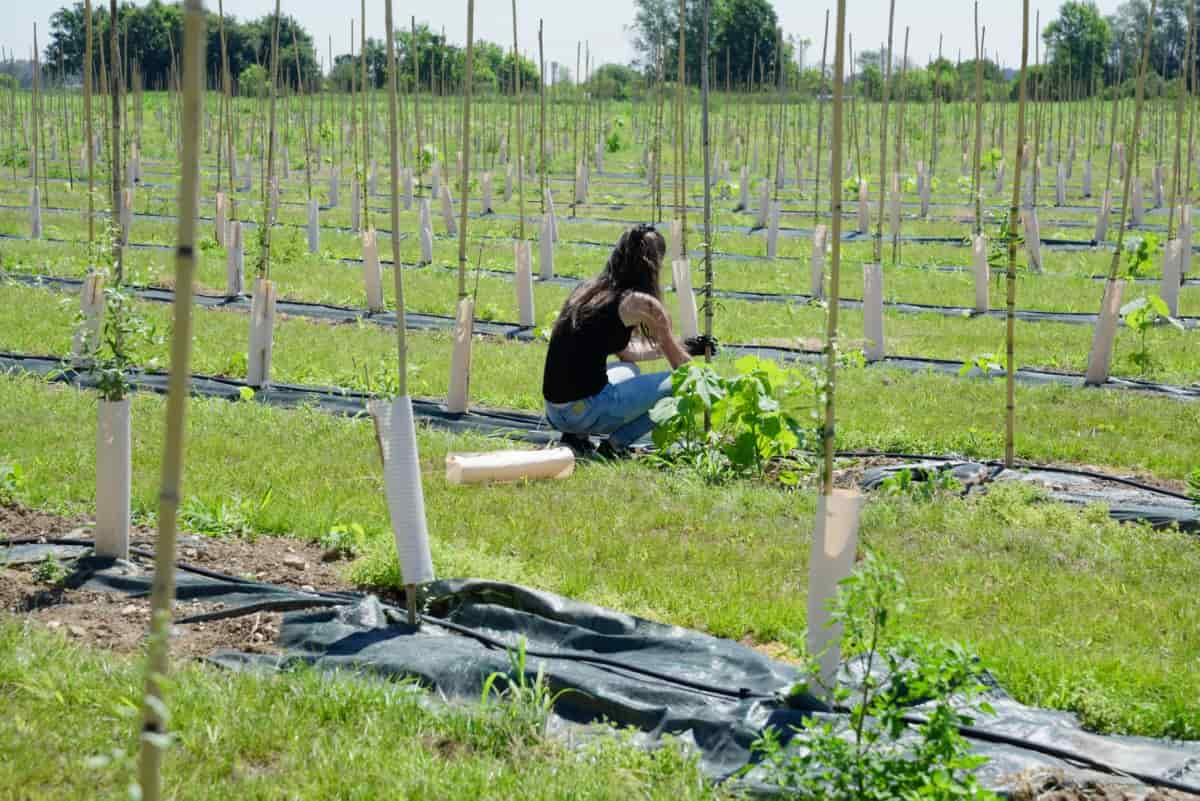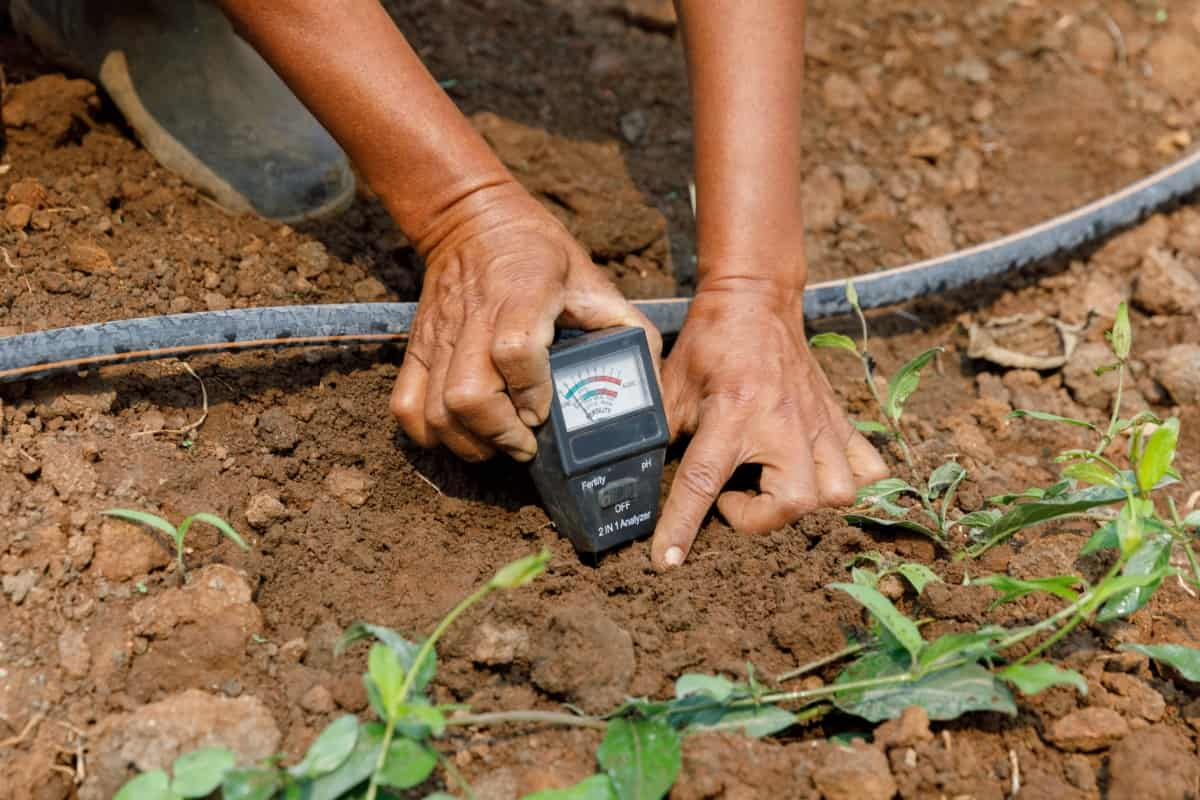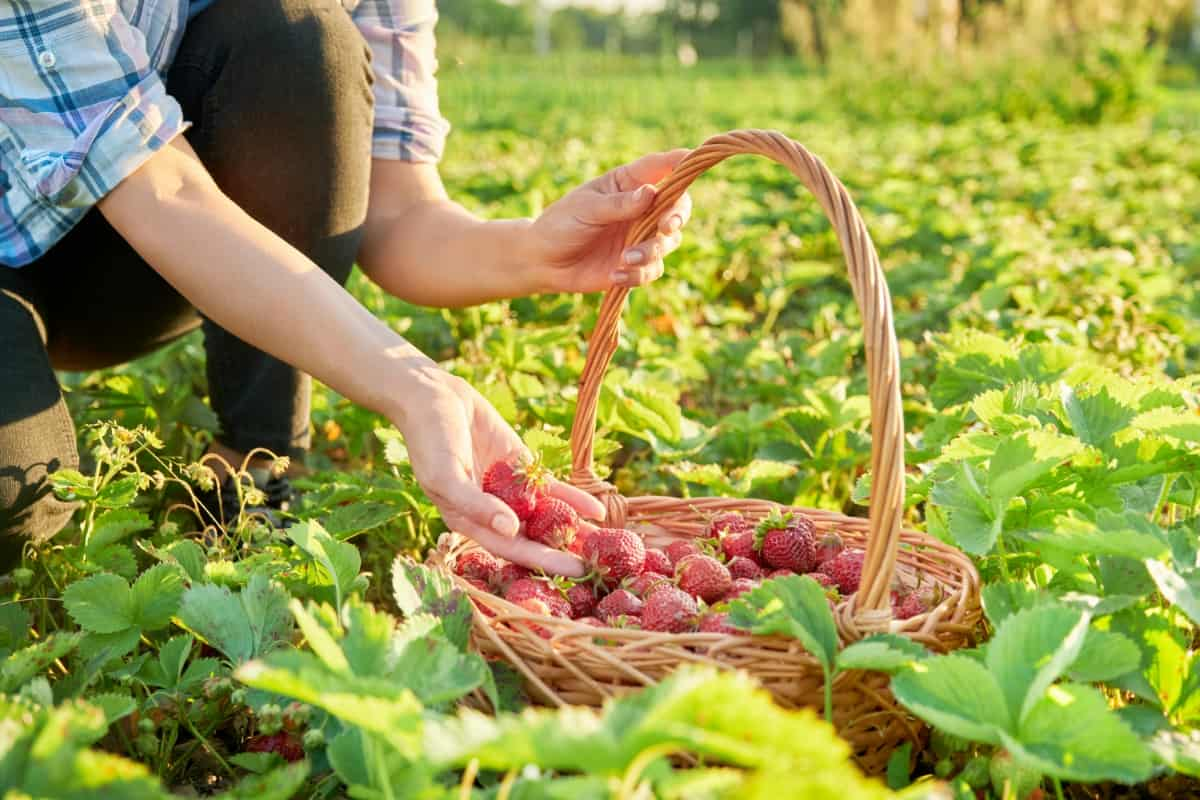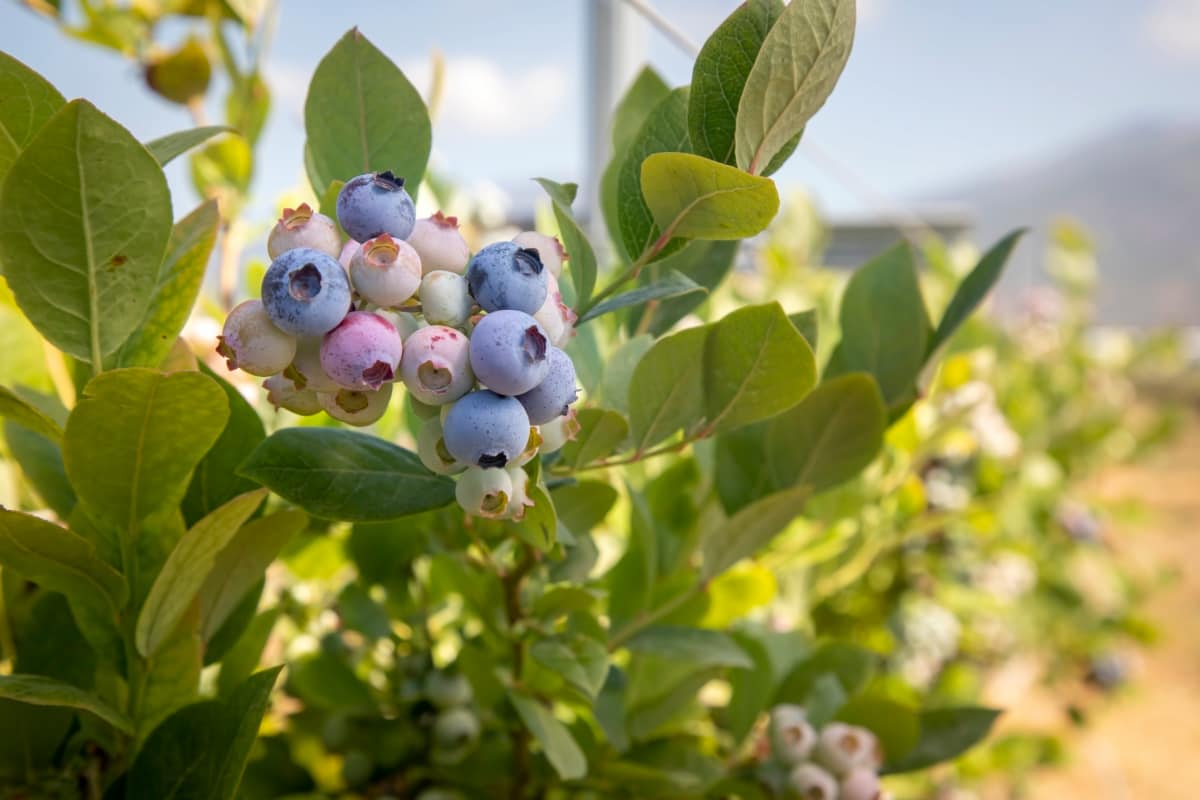Soil pH determines the availability of essential nutrients to plants and affects their overall health, growth, and productivity. By understanding the ideal soil pH requirements for different Berry varieties, growers can provide them with an environment that promotes healthy root growth and maximizes nutrient absorption.

Soil pH for Berries
Importance of Soil pH
Berries soil pH refers to how acidic or alkaline, and this can greatly impact the growth, health, and productivity of Berry plants. The key benefit of ensuring the right soil pH for Berries is improved nutrient availability. Furthermore, achieving the right soil pH promotes better root development in Berry plants. It affects the plant nutrient availability and influences their overall health and productivity. Maintaining the ideal soil pH for different Berry varieties is essential for optimal growth.
Ideal Soil pH for Different Berry Varieties
| Different Berry Varieties | Soil pH Range |
| CranBerries | 4.0 – 5.5 |
| BlueBerries | 4.5 – 5.5 |
| BlackBerries | 6.0 – 7.0 |
| Goji Berries | 6.8 – 8.1 |
| ElderBerries | 5.5 – 6.5 |
| RaspBerries | 5.6 – 6.5 |
| StrawBerries | 5.0 – 6.5 |
| Acai Berries | 4.5 – 6.5 |
Testing Soil pH
This measurement determines the acidity or alkalinity of the soil, which directly affects the plants’ ability to absorb nutrients. Testing your soil’s pH is essential because different Berries thrive in specific pH ranges. To test your soil’s pH, you can use a DIY kit available at garden centers or send a sample to a professional lab. Collect samples from various areas of your Berry patch and mix them for an accurate representation. Once you have your results, compare them with the optimal pH ranges for each Berry variety.
Lowering Soil pH
The effective way to lower the soil pH for Berries is by incorporating organic matter into the soil. Adding materials such as peat moss or compost can help acidify the soil over time. These organic amendments not only decrease the pH level but also improve overall soil structure and fertility.
In case you missed it: How to Balance Soil pH with Baking Soda: Create Optimal Conditions for Plant Growth

You can also consider using iron sulfate or aluminum sulfate as quick fixes to reduce alkalinity in your Berry bed temporarily. These products work by releasing acidic ions into the surrounding area and lowering the overall pH level. Regularly test and monitor your soil’s pH levels throughout this adjustment period until you reach an optimal range suitable for your specific Berry variety.
Increasing Soil pH
Maintaining the right soil pH is crucial for the healthy growth of Berry plants. However, there may be instances when the soil pH is too low for optimal Berry production. In such cases, it becomes necessary to increase the soil pH to create a more favorable environment.
The organic approach to increasing soil pH is by incorporating lime into the soil. Lime contains calcium and magnesium carbonate, which helps neutralize acidity and raise the overall pH level. It’s important to note that different types of Berries have varying preferences in terms of ideal soil conditions, so it’s essential to conduct a soil test before making any amendments.
Another method involves using wood ashes as a natural source of alkalinity. Wood ashes contain high levels of potassium carbonate, which can help elevate the pH level in acidic soils. However, caution should be exercised as excessive use can lead to nutrient imbalances.
Organic Approaches to Adjusting Soil pH
The popular organic approach is using compost or well-rotted manure. These natural amendments contain beneficial microorganisms that break down over time, releasing nutrients and helping balance soil pH levels. Incorporating them into the top layer of soil can gradually lower or raise pH as needed. Another effective method is using coffee grounds. Rich in acidifying compounds like tannic acid, coffee grounds can help lower soil pH for plants that thrive in acidic conditions.
Sprinkle them around the base of Berry plants and water thoroughly. For those looking to increase soil pH naturally, agricultural lime is a great option. Made from crushed limestone, this organic amendment slowly raises alkalinity levels over time when applied correctly. Furthermore, adding wood ash from hardwood fires can also increase soil pH by raising alkaline levels organically. However, it’s important to note that excessive use may lead to nutrient imbalances and should be used sparingly.
Chemical Methods for Adjusting Soil pH
These methods involve the use of specific substances to either lower or increase the pH levels in the soil. To lower soil pH, sulfur-based compounds such as elemental sulfur or ammonium sulfate can be used. These substances react with water and bacteria in the soil to produce sulfuric acid, which helps to reduce alkalinity and bring down the pH level. On the other hand, if you need to raise soil pH, agricultural lime is commonly used.
In case you missed it: Tips for Growing with Heavy Clay Soil in Your Garden

This type of lime contains calcium carbonate and works by neutralizing acidity in the soil. It slowly releases calcium ions into the soil, raising both its nutrient content and its overall pH level. Applying too much or too little of these chemicals can have adverse effects on plant growth and health. Additionally, it’s recommended to conduct a thorough analysis of your soil before applying any chemicals. This will help determine how much amendment is needed and prevent over-application.
Monitor and Maintain Optimal Soil pH
The first step in monitoring soil pH for Berries is to conduct a soil test. The results will provide you with valuable information about the acidity or alkalinity of your soil. Once you have obtained the initial pH reading, it’s necessary to monitor and adjust as needed throughout the growing season. Regularly checking the pH levels will help you identify any fluctuations that may occur over time.
To maintain optimal pH levels, there are several approaches you can take. One option is to use organic amendments such as compost or well-rotted manure, which can gradually help lower or raise the pH depending on your specific needs. Remember that maintaining optimal soil pH for Berries requires consistency and regular monitoring. It’s essential to make adjustments slowly and carefully rather than making drastic changes all at once.
Impact of Soil pH
The optimal pH range for different Berry varieties ensures that they receive the necessary nutrients and thrive in their environment. Maintaining the ideal soil pH for Berries not only promotes healthy growth but also enhances their flavor, color, and overall taste. Regularly testing and monitoring soil pH levels is essential to ensure that Berries are getting the nutrients they need.
Whether you need to lower or increase your soil’s pH, there are various organic approaches and chemical methods available. Remember to take into account other factors, like drainage, fertility levels, and organic matter content, when working with your soil. By providing an optimal growing environment through proper management of soil pH, you can maximize both the quantity and quality of your Berry harvests.
In case you missed it: How to Prepare the Soil for Dragon Fruit Cultivation

Conclusion
Maintaining the optimal soil pH range is important because it directly influences nutrient uptake by Berry plants. When the soil has an imbalanced pH level, certain nutrients may become unavailable or toxic to the plants, leading to reduced yield. Different varieties of Berries have specific preferences when it comes to soil acidity levels.
- Feed Your Flock for Less: Top 10 Tips to Save on Chicken Feed
- Ultimate Guide to Ossabaw Island Hog: Breeding, Raising, Diet, and Care
- Hatching Answers: The Top 10 Reasons Your Chickens Aren’t Laying Eggs
- Eggs and Economics: Breaking Down the Cost of Raising Backyard Chickens
- Defend Your Greens: Proven Methods to Keep Iguanas Out of Your Garden
- Ultimate Guide to Cinnamon Queen Chicken: A Comprehensive Guide for Beginners
- Ultimate Guide to California Tan Chicken: Breeding, Raising, Diet, Egg-Production and Care
- Ultimate Guide to Marsh Daisy Chicken: Breeding, Raising, Diet, and Care
- 10 Types of Chicken Farming Businesses You Can Start for Profits